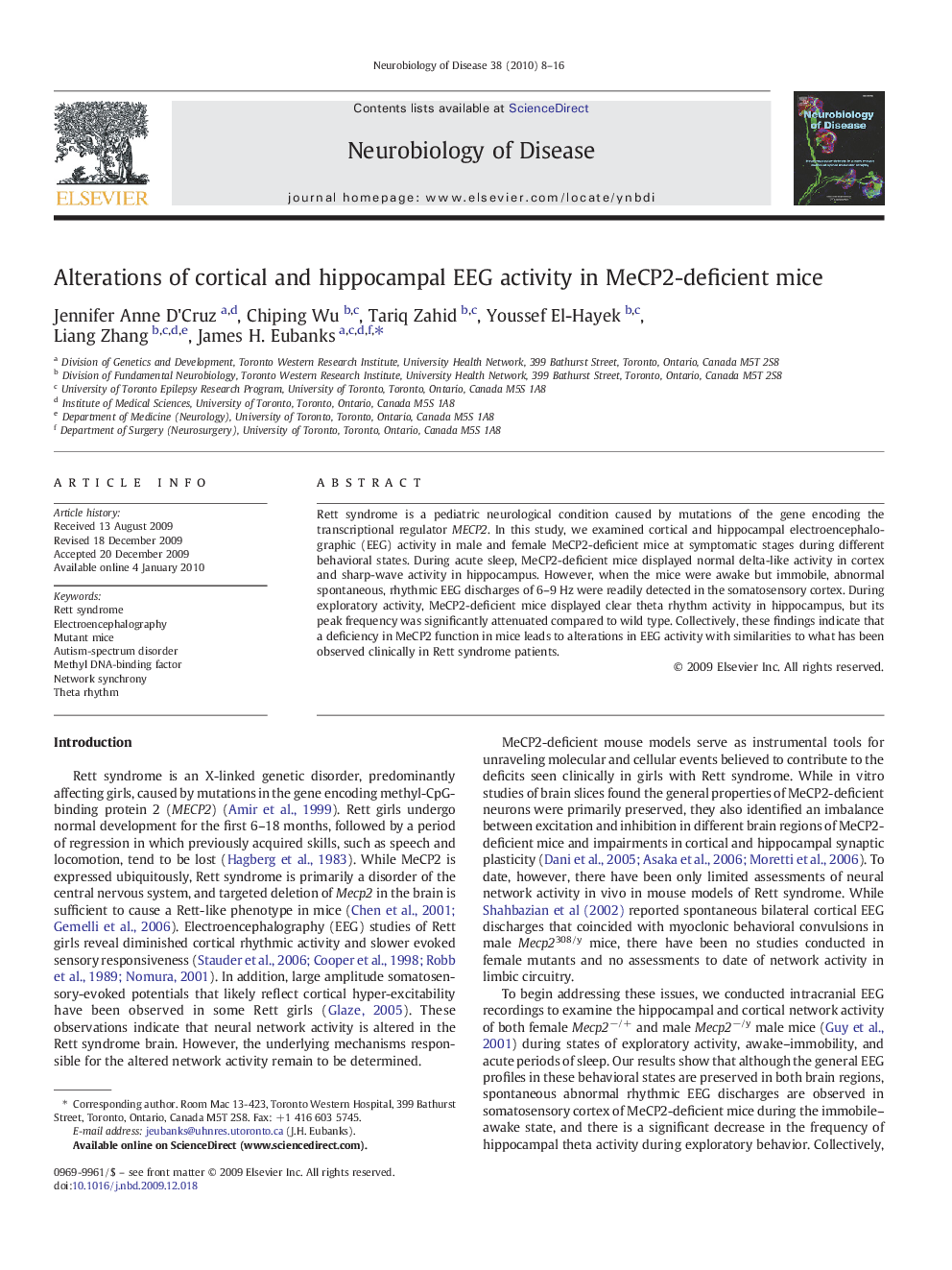| Article ID | Journal | Published Year | Pages | File Type |
|---|---|---|---|---|
| 3069952 | Neurobiology of Disease | 2010 | 9 Pages |
Rett syndrome is a pediatric neurological condition caused by mutations of the gene encoding the transcriptional regulator MECP2. In this study, we examined cortical and hippocampal electroencephalographic (EEG) activity in male and female MeCP2-deficient mice at symptomatic stages during different behavioral states. During acute sleep, MeCP2-deficient mice displayed normal delta-like activity in cortex and sharp-wave activity in hippocampus. However, when the mice were awake but immobile, abnormal spontaneous, rhythmic EEG discharges of 6–9 Hz were readily detected in the somatosensory cortex. During exploratory activity, MeCP2-deficient mice displayed clear theta rhythm activity in hippocampus, but its peak frequency was significantly attenuated compared to wild type. Collectively, these findings indicate that a deficiency in MeCP2 function in mice leads to alterations in EEG activity with similarities to what has been observed clinically in Rett syndrome patients.
